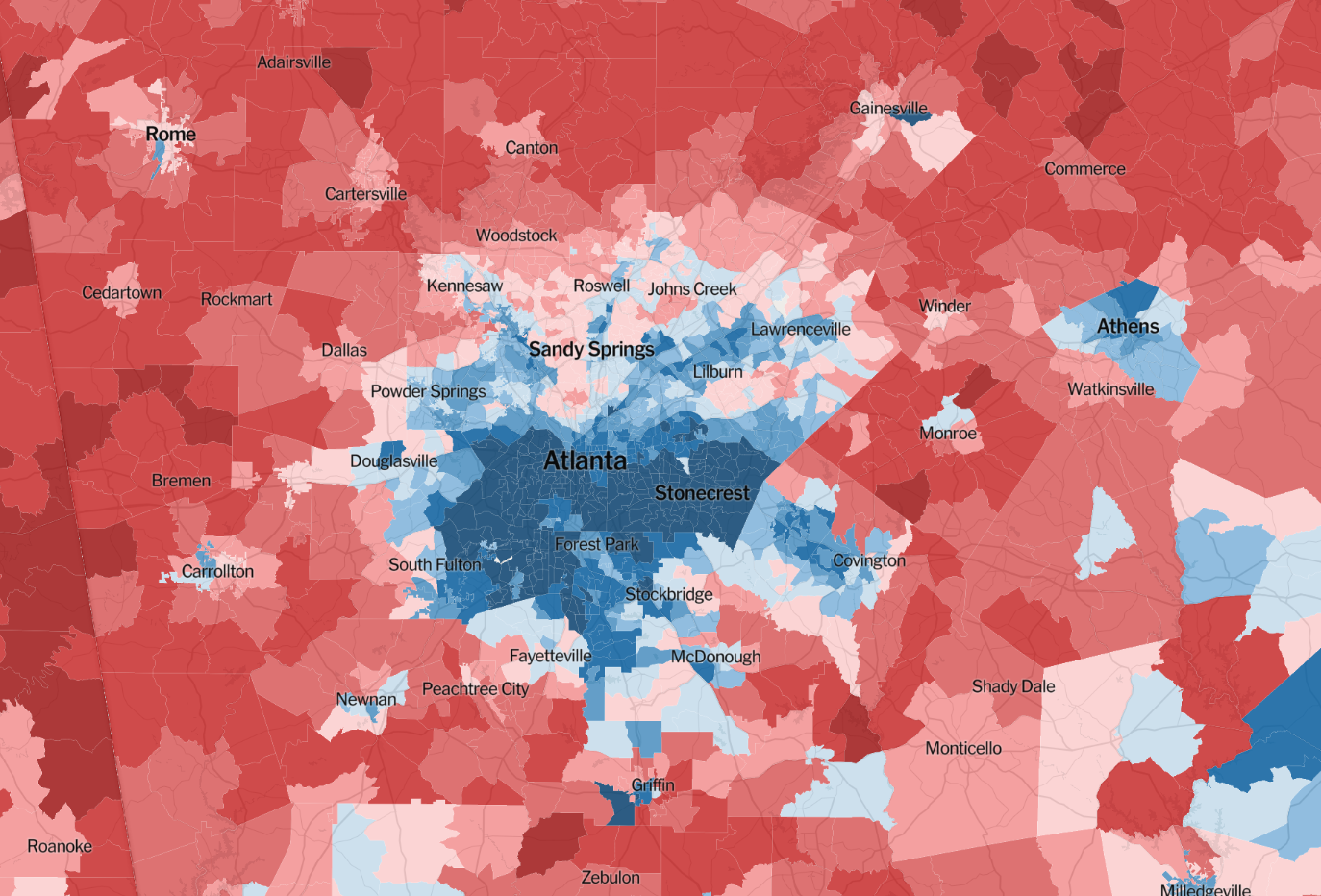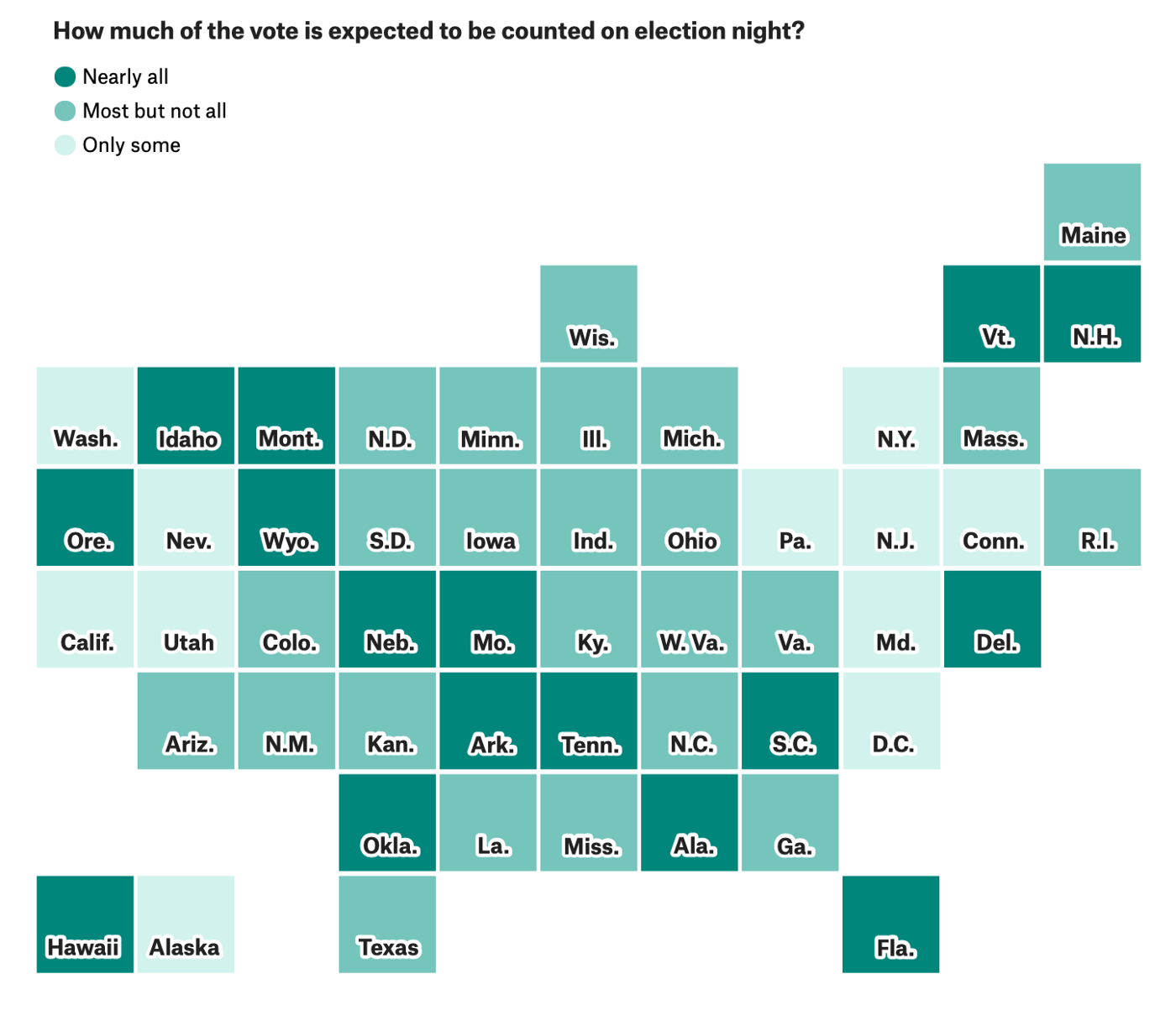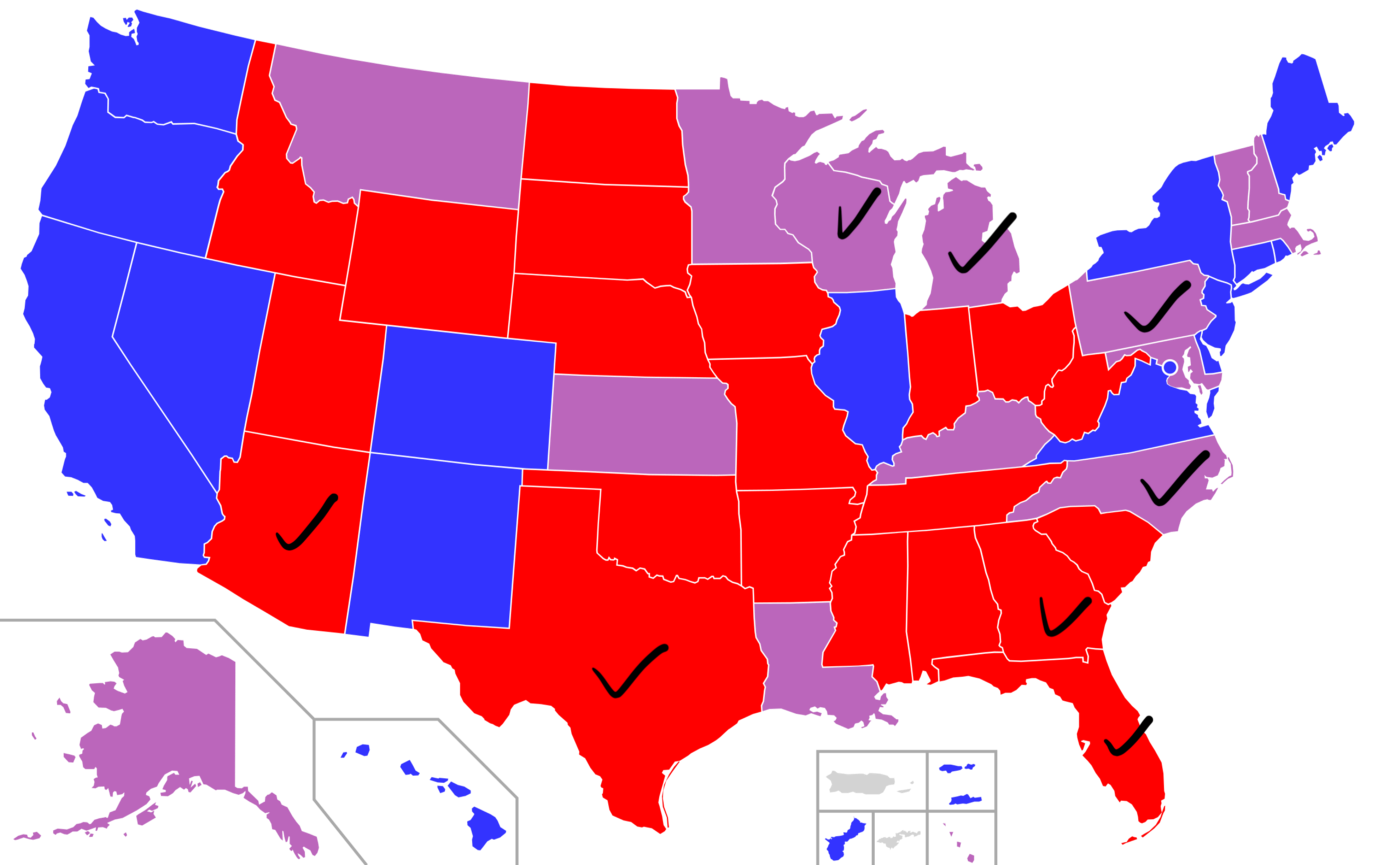副業是在香港中文大學教書,主業是玩貓。
A guide to on-the-spot voting for the U.S. presidential election
The last U.S. presidential election was broadcast live on TVB, and of course it won’t go again this year. In fact, this year, all invitations to live broadcasts have been turned down. The reason is: I accidentally counted the votes for several days, and I was afraid that I would have to analyze the results without sufficient results, and I was forced to be foolish and foolish to face the camera. It is estimated that Zhong has to talk about being very confident (so I can't be a KOL).
Having said that, I have to explain that "invoicing and invoicing" is indeed a professional skill. Foreign media will have a group of experts and scholars doing backstage analysis, and the reporters in front of the screen will know what to discuss. This year, everyone is eagerly paying attention, and it is necessary to share some important experiences with you.
Before talking about which states to pay attention to, let's talk about a prerequisite that must be done when doing billing analysis:
The point is not the instant number of votes, but whether there is a gap with expectations.
For example, going back to the Kowloon West by-election in November 2018, I was in charge of watching the numbers at Lee Cheuk-yan's campaign headquarters that night. At that time, it was reported that Li Zhuoren had won the voting booth at the bottom of Mei Foo Bridge. Of course, the volunteers were happy. When I saw the number of votes, I confirmed the prediction for the whole day: Li Zhuoren would lose. Li Zhuoren won Chen Kaixin by 322 votes at the bottom of Meifu Bridge on the same day, but Yao Songyan won 542 votes from Zheng Yongshun at the same station in the previous March, and Yao Songyan did not win this election. In middle-class areas such as Mobil, the democrats must win more and more to make up for the votes expected to be lost in old areas such as Ma Tau Wai. Where there should be a big victory wins less, it foreshadows a loss.
Going back to the 2016 presidential election, when did I start to realize the "wrong way" when I was doing the billing live broadcast on TVB? It was the first half hour after the ballots were opened, and it was discovered that Hillary did not take Virginia easily, because she was expected to win here. At that time, I took advantage of the advertising time and the host to say: Trump may be upset. In the end, although Hillary finally won in Virginia, it was a risky win, and Trump was really upset.
Knowing this, you won't be overly nervous about who temporarily leads the ballot.
Red and Blue Phantom
The easiest and simplest classification is to look at urban tickets versus rural tickets. The same state often also has urban and rural voting stations, and the results can be very different.

If so, if Trump is leading at the beginning, especially when only a few percent of the polls have results, you have to pay attention to whether the city votes or the rural votes were ordered at that time, and whether the urban or rural votes have not yet been voted. Tickets, this is easy to understand, no need to mess around.
But the above is only a normal situation. This year, there is another difficulty: mail-in ballots. This year, 93.27 million people voted, of which 59.25 million were mail-in ballots , far more than the previous one. Since mail-in ballots are expected to be skewed toward the Democratic Party, the order in which mail-in ballots are clicked can greatly affect the results that appear when the ballots are issued. If the results of the mail-in ballots come out first, it will initially look like a big victory for the Democrats, and then the Republicans will come back; Possibly another name, "Red Phantom").
The most troublesome is the order in which mail-in ballots are processed, which varies from state to state and even county to county. Unless you are an expert in the media who is responsible for checking and invoicing, it is human nature to not keep up.
If so, how can ordinary people check and issue tickets? Two words: patience. One day without the official result, one day do not make the final judgment.
This sentence is rubbish, but it is very important in this session. Because Trump is likely to ignore the considerations mentioned above, American time will declare himself the winner that night. It is conceivable that he will trigger a serious political crisis in doing so. The reality is that Americans are well aware of the special circumstances of this year's session and will not know the results soon. The survey shows that half of them do not expect to know the final results within a day or two, so it is believed that if Trump does do this, he will be cited. to many doubts.
In Hong Kong, one could imagine a crowd of pro-Trump KOLs dancing immediately after seeing Trump self-declared his victory, or when the votes in individual states seemed to favor Trump. I make a serious appeal here: Thousands of prayers, thousands of prayers, thousands of prayers, don't take care of them. This has nothing to do with politics, it's purely a matter of mathematics.
More, more, don't go and attack American politicians because of these disputes. Elections are a core American value, and anyone who does not respect the results of elections (including waiting patiently for the results of the count) is a sinner. At this moment, Hong Kong cannot afford to take the initiative to control its enemies in the United States, so it is absolutely impossible for Hong Kong to intervene in the vote-counting dispute.
swing states
Having said a lot, does that mean that it is impossible to know the result that night? Neither. We have to look at the counting rules of each state and the degree of criticality. For example, the vote count in New York state will be very slow, but no one expected Trump to be elected in New York state, so it doesn't matter. Let's first look at the state vote counting rules of the 538 survey:

As I said before , there are only three states in this election: Pennsylvania PA, Michigan MI, and Wisconsin WI. If Biden wins these three states, even if all the other swing states lose, they will still win by enough votes. Now, two days before the election, it is known that Biden leads 8% and 10% in Wisconsin and Washington, respectively, which is quite stable. If so, all attention is on Pennsylvania.
(I'm not going to tell you "Pennsylvania" jokes. I ask all editors who tell "Pennsylvania" jokes to self-examine why they can be so boring for the sake of ratings. It's rare to care about the most influential people in the world every four years. in that country, take it seriously?)
Biden is currently leading by 6% in Pennsylvania, which is normally a solid lead. But after the battle in 2016, everyone was afraid that the polls would be inaccurate (in fact, even if this poll was inaccurate by the same margin and in the same direction as the previous poll, Biden would still win in Pennsylvania). But everyone is still surprised, especially since the early voting rate in Pennsylvania is currently lower than in other states, and it is not true that public opinion has not been voted in the ballot box for a day.
So does that mean we just have to wait and see what happens in Pennsylvania? is not. The problem is that Pennsylvania's vote count is expected to be very slow, and with an earlier court ruling that the state can accept mail-in ballots arriving within three days of the general election as valid, it will be difficult to know the result that night. . But until Pennsylvania has a final result, there may be results in other states enough to push Biden past the 270-vote threshold.
In addition to Pennsylvania, there are Arizona AZ*, North Carolina NC, Florida FL, Georgia GA, and Texas TX. Biden wins either one, Trump wins all of them.
(*Meanwhile adding Nebraska 2nd district NE-2 or any other district or substate, Arizona alone would be a 269–269 tie)
Note that Florida and North Carolina are "faster states," states with relatively fast counting procedures, and both are on the east coast and complete voting earlier in the time zone. Legislation in both states allows staff to start counting early ballots before Election Day (the results won't be made public until after the election, of course), so results are expected very early. If Biden wins in one of the states, the outcome in Pennsylvania doesn't matter, and Biden is basically guaranteed to be elected.
But if the pair's results in two states are inconclusive, they'll have to wait for late ballots to arrive. For example, many soldiers stationed overseas in Florida have registered their addresses here. It is expected that 50,000 votes will be sent back from overseas military bases, and the law stipulates that they can arrive at the latest on November 13, so if the final vote gap is very small (and this happens a lot in Florida), then there's really a queue.
Voting charges?
Finally, what the American public is most worried about at the moment is that during this long waiting process, there will be a large number of legal lawsuits and even all kinds of accusations of vote-making. Regarding the vote-making allegations, as mentioned above, I implore the people of Hong Kong not to intervene . The so-called ticket-making, reality can not happen. Let's take a look at the picture below:

The U.S. election is organized by the state government, and I especially tick the important states mentioned above. It can be seen that if they are not dominated by the Republican Party themselves, the two parties control the state government and the state legislature respectively. Under these circumstances, the chances of the Democrats trying to change the outcome of the election by manipulating the vote count are zero. If there is a dispute, the state will resolve it on its own, and if it doesn't, it will go to the Federal Supreme Court, which is currently dominated by conservatives. So if someone tells you how the Democrats are going to steal the US election, either he doesn't understand American politics, or he's grandstanding, er, clicking on ads.
Conversely, in some states where the Republican Party is in full control (such as Texas and Florida), there are quite a few accusations against the Republican Party about the fair conduct of elections, such as deliberately reducing the number of voting stations and so on.
This year's US election has attracted the attention of many Hong Kong people, which is a good thing. But the starting point of concern is understanding. In particular, the United States is very worried that there may be chaos in this year's balloting. Americans themselves attach great importance to the election itself. Hong Kong people want to comment on the balloting process. Please be cautious, cautious, and more cautious. And please be vigilant about so-called comments that are seriously open-mouthed.
Like my work?
Don't forget to support or like, so I know you are with me..
Comment…